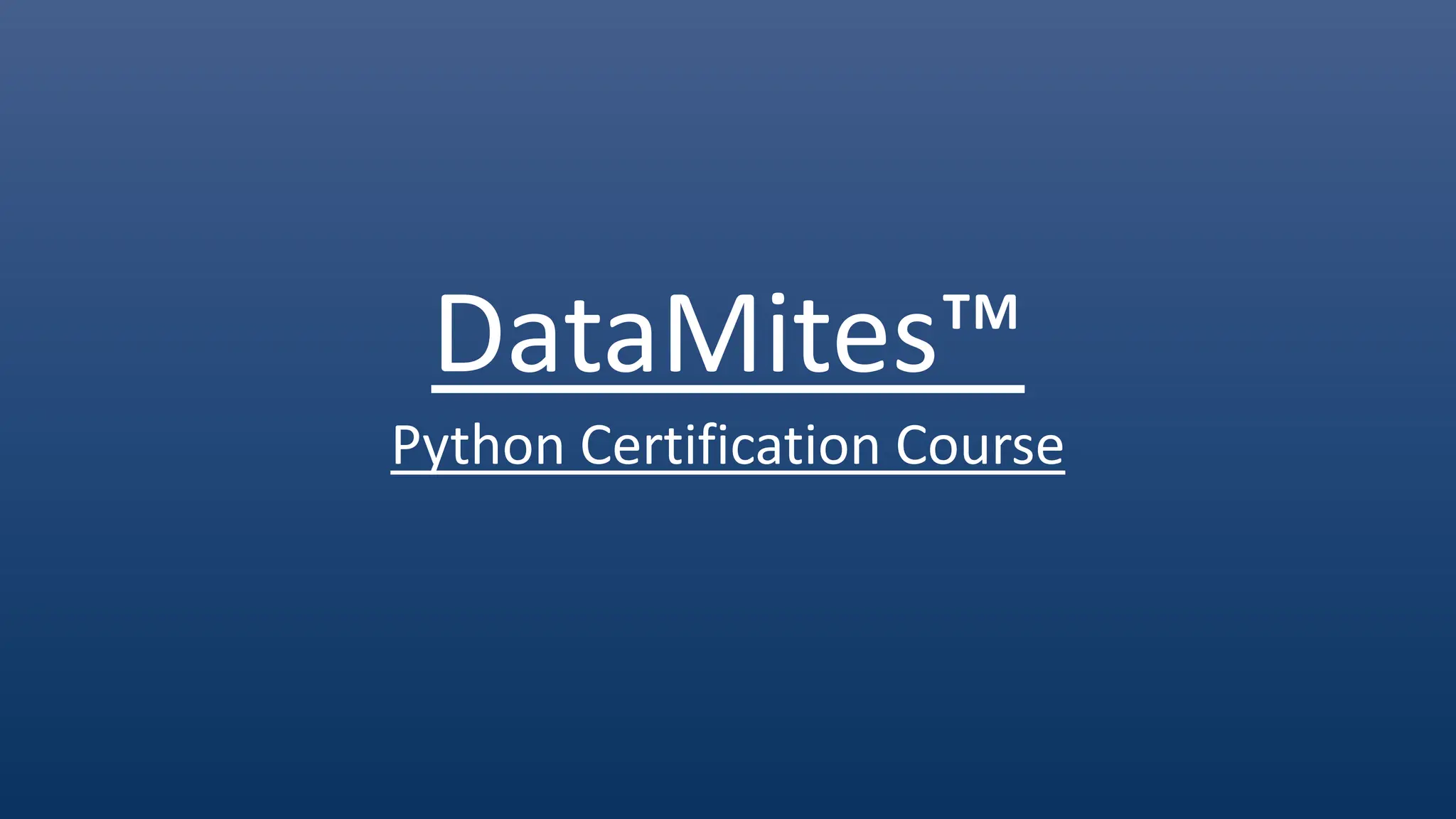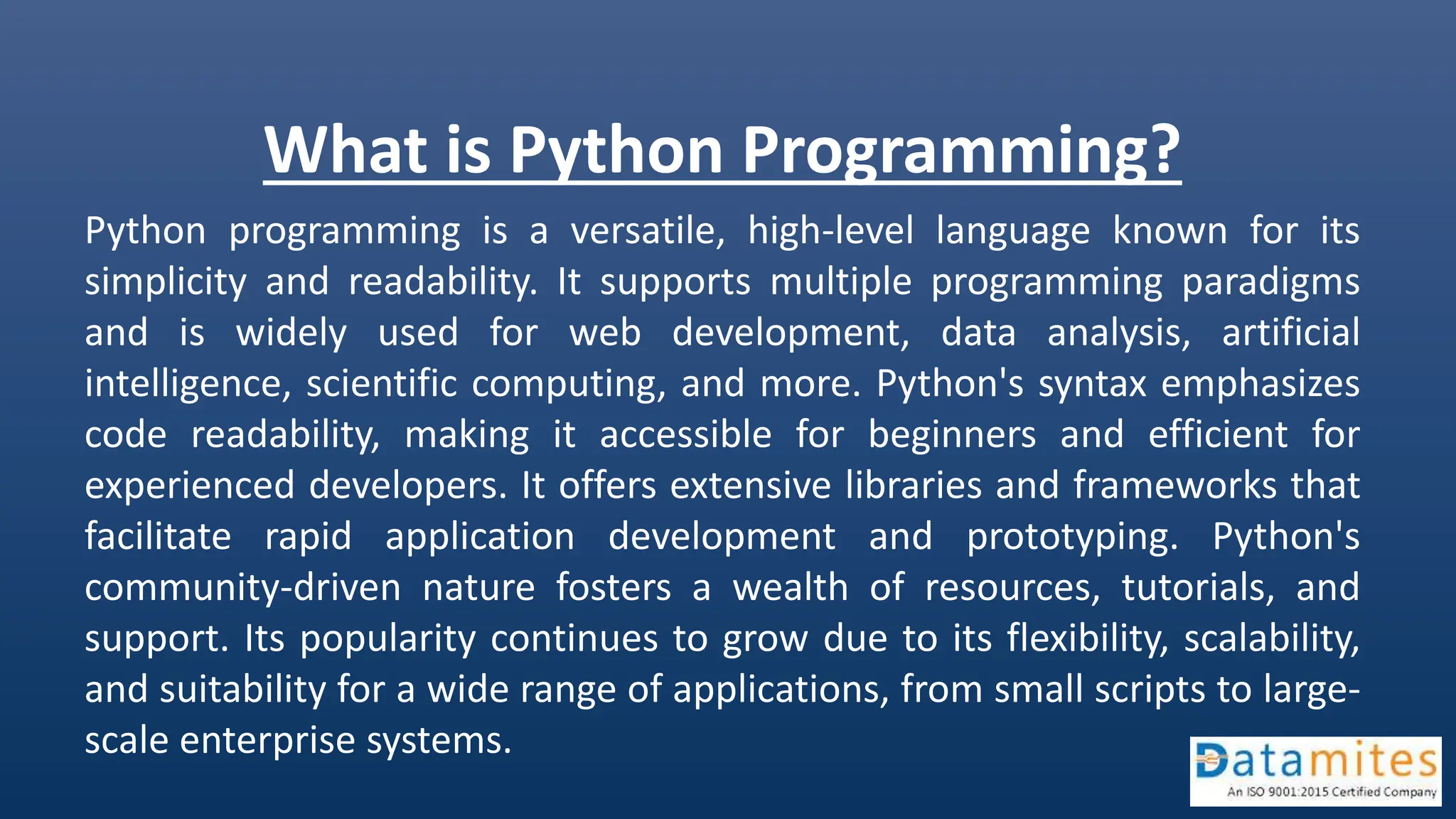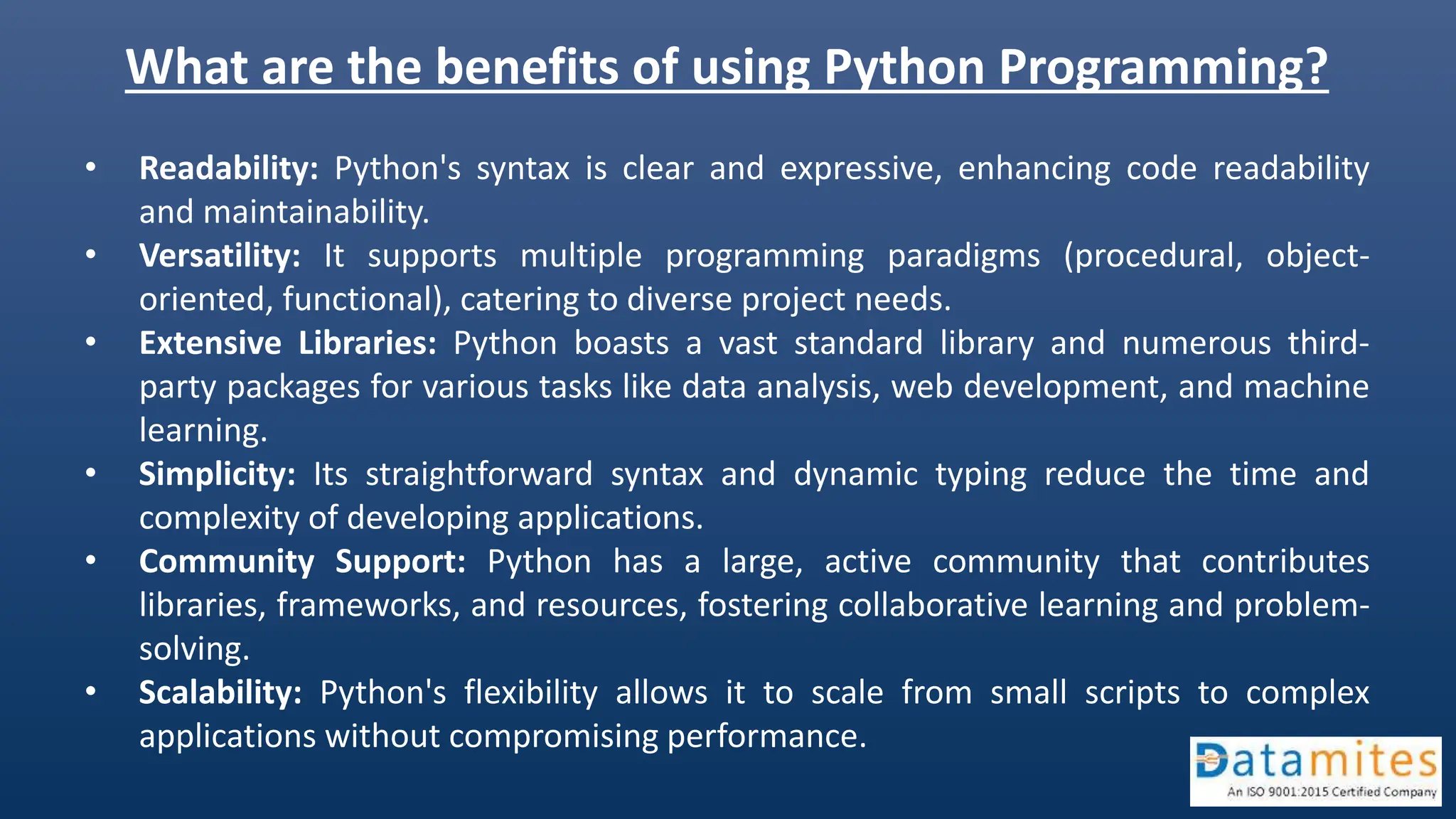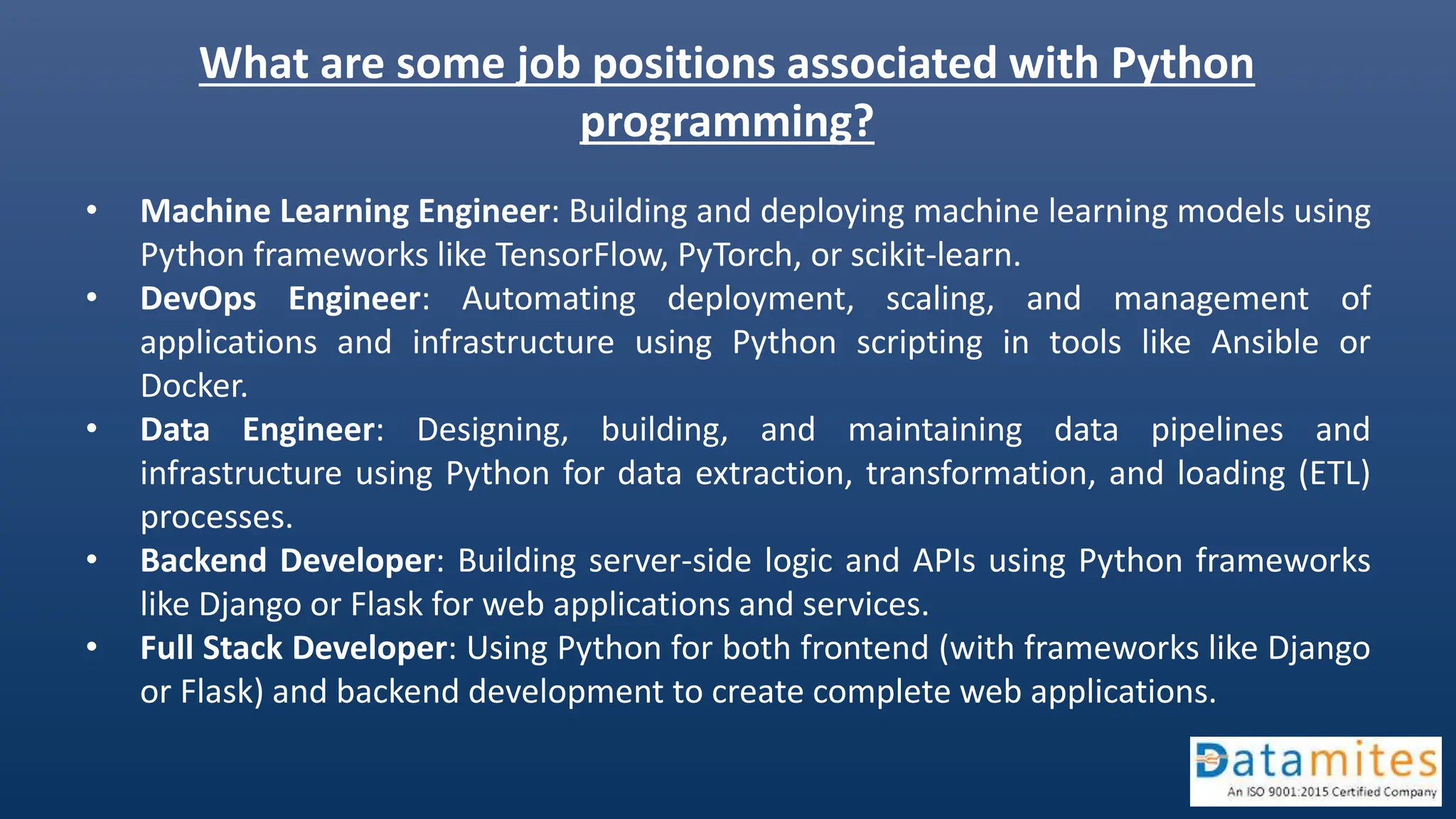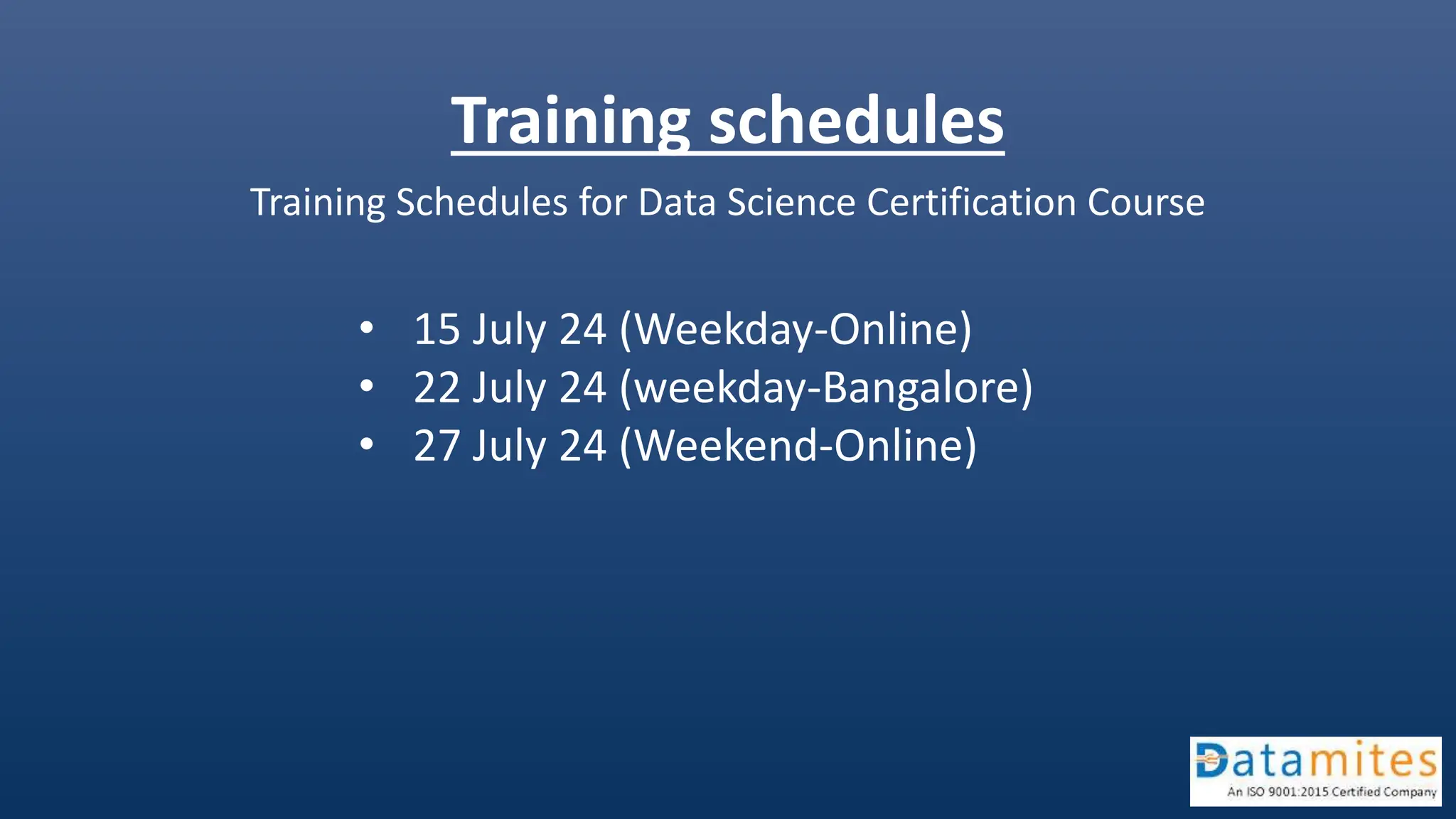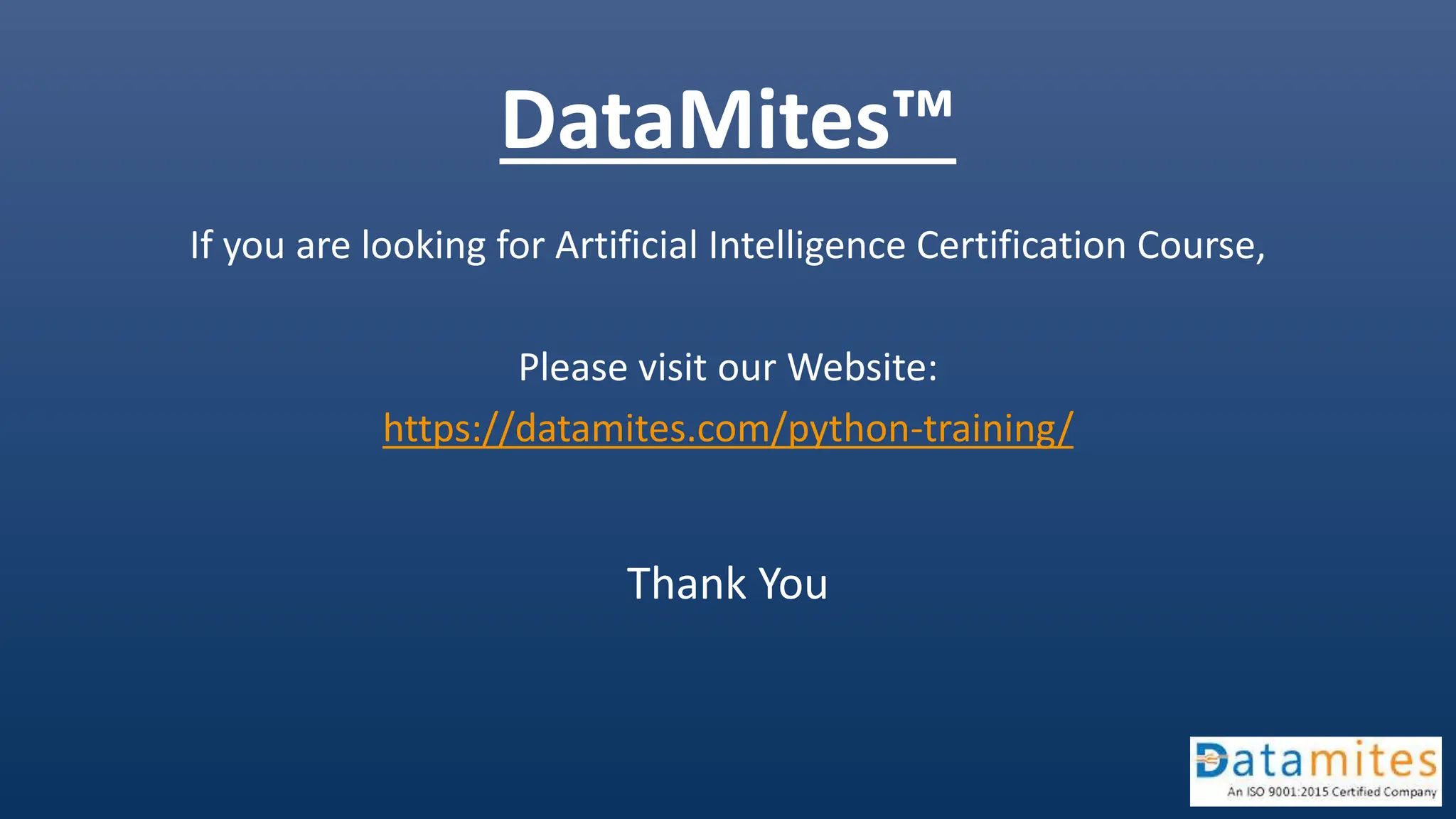The document describes a Python certification course, highlighting Python's versatility as a programming language known for its simplicity and readability, which supports various programming paradigms. It details the benefits of using Python, including its readability, extensive libraries, and strong community support, as well as job positions associated with Python programming, such as machine learning engineer and data engineer. Additionally, it outlines training schedules for the certification course offered by DataMites.
